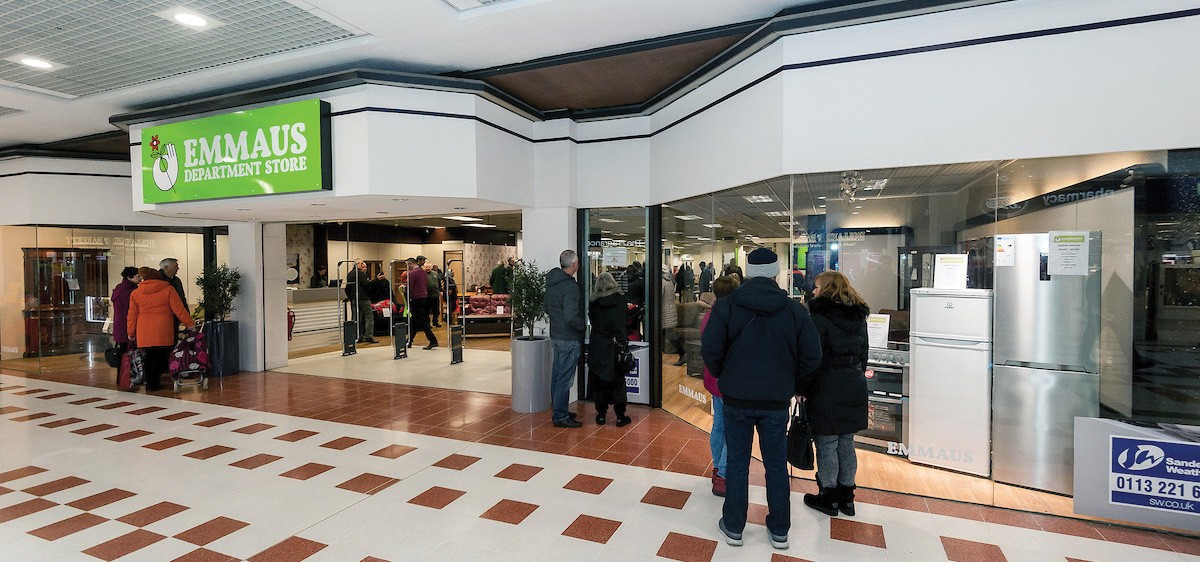With the retail industry in a seemingly constant state of upheaval thanks to the rise of online shopping. changing consumer tastes and the entrance of discounters to the market, established players are having to adapt.
This is particularly true for the UK’s Co-operative Group, which was forced into a lengthy process of reforms following its financial crisis in 2013, and is now looking at new ways to expand its reach.
Alongside traditional methods of expansion – the Group kicked off 2019 by announcing a £200m investment programme, to create 100 new stores this year, and is supporting its growth with new distribution depots in Inverness and Bedfordshire – the Group is putting new franchising models and partnerships in place.
These include the purchase last year of convenience mutual Nisa, a pilot delivery scheme in Manchester using Deliveroo, temporary stores at music festivals, and its deal to supply wholesale to the Costcutter chain.
The Group has a head of new channels, Martin Rogers, who says wholesaling is a useful way to extend the Group’s brand. “It gives us scale,” he says on the Co-op Group website, “but there’s an ethical argument for it too. Think about our Fairtrade, healthy eating and ethical credentials – giving more people access to our products means we’re reaching out to more communities with our Co-op difference.”
He believes franchising – a model already common among Dutch co-ops – is also a valuable means for growth. “It’s part of a suite of tools that we need to use in the modern economy to get to people where they are rather than this slightly old fashioned idea of ‘if we build something people will just come to us.
“What could be more co-operative than allowing individual entrepreneurs to access the strength of our buying power and products to reach as many places as possible. You’re talking about Co-ops in hospitals, service stations, universities – places where people are.”
Now the Group has developed another franchise partnership, joining forces with with Leeds University Union (LUU) to transform the union supermarket to serve the campus.
The new-look store, which launches on 20 February and is managed by LUU staff and members, is the Group’s first franchise store to open on a university campus.
Related: Group commits to a sustainable food future
It will offer Co-op Group’s full range of fresh, healthy foods, meal ideas, vegan and free-from products, Fairtrade produce, food-to-go, in-store bakery and essentials.
Holders of the Totum student discount card will get a 10% discount off groceries, and the Group’s 5-and-1 membership scheme also applies, giving members receive a 5% reward on purchases of own-brand products, with a further 1% going to to local causes.
Mr Rogers said: “This is an important development for the Co-op, we have a long-standing partnership with NUS and a relationship with LUU is a natural progression. We believe a strong Co-op can create stronger communities, and this move supports our ambition to get closer to our members and customers, what they want, need and, care about. The store will have the range, choice, ease and convenience tailored to serve campus needs – we look forward to serving the Leeds University community.”
LUU union affairs officer Chris Morris said: “Following student feedback we have been keen to secure a leading retail partner, and the Co-op is the perfect fit – delivering real benefits to student life and shared values including concern for environment, community, trading fairly, health and well-being and, employment opportunities.
“We already sold a selection of Co-op products, and this enables us to offer a full range, with the availability and service you would expect from an award-winning retailer – we look forward to working with the Co-op on a union shop that works for and listens to student needs.”
Social responsibility
As austerity continues to bring hardship to the UK, new models of grassroots community retail are springing up to serve the poorest sections of society, who had been left reliant on foodbanks.
The Co-op Group is supporting some of these ventures – notably in the town of its birth, Rochdale, where its stores are supplying food to the Pioneers Pantry. And it is allowing homeless charity Emmaus to use one of its buildings in the town rent-free, so it can set up its first ever department store.

Emmaus, formed more than 55 years ago, will give the unused 50,000 sq ft space a new lease of life, while continuing its work to overcome homelessness and social exclusion.
The store was officially opened at the start of January at Rochdale Exchange Shopping Centre by actor and Emmaus ambassador, John Henshaw. In its first year, it is expected to equip around 60 vulnerable people with the skills, training and qualifications needed to integrate back into society.
The department store will support the charity’s work to deliver wider social, environmental and economic benefits in the community. Spread across three levels, it offers a wide range of new and pre-owned items including furniture, homeware, electrical appliances, clothing and vintage goods.
Stuart Hookins, the Group’s director of portfolio and development, said: “Connecting communities and bringing people together is at the heart of the Co-op, we are committed to supporting the creation of stronger communities. This move not only breathes new life into an unused space but supports the charity’s work to transform the lives of vulnerable people in our communities.”
Stephen Buchanan, director of Emmaus Rochdale, said: “The Emmaus Department Store will provide a huge boost for our charity, offering meaningful work and training opportunities whilst generating an income to maintain our wider support. It is apt that Rochdale is the birthplace of co-operation. We share so many values with the Co-op and by working together we have created an incredible opportunity to make a real difference to the lives of people who have experienced homelessness.”